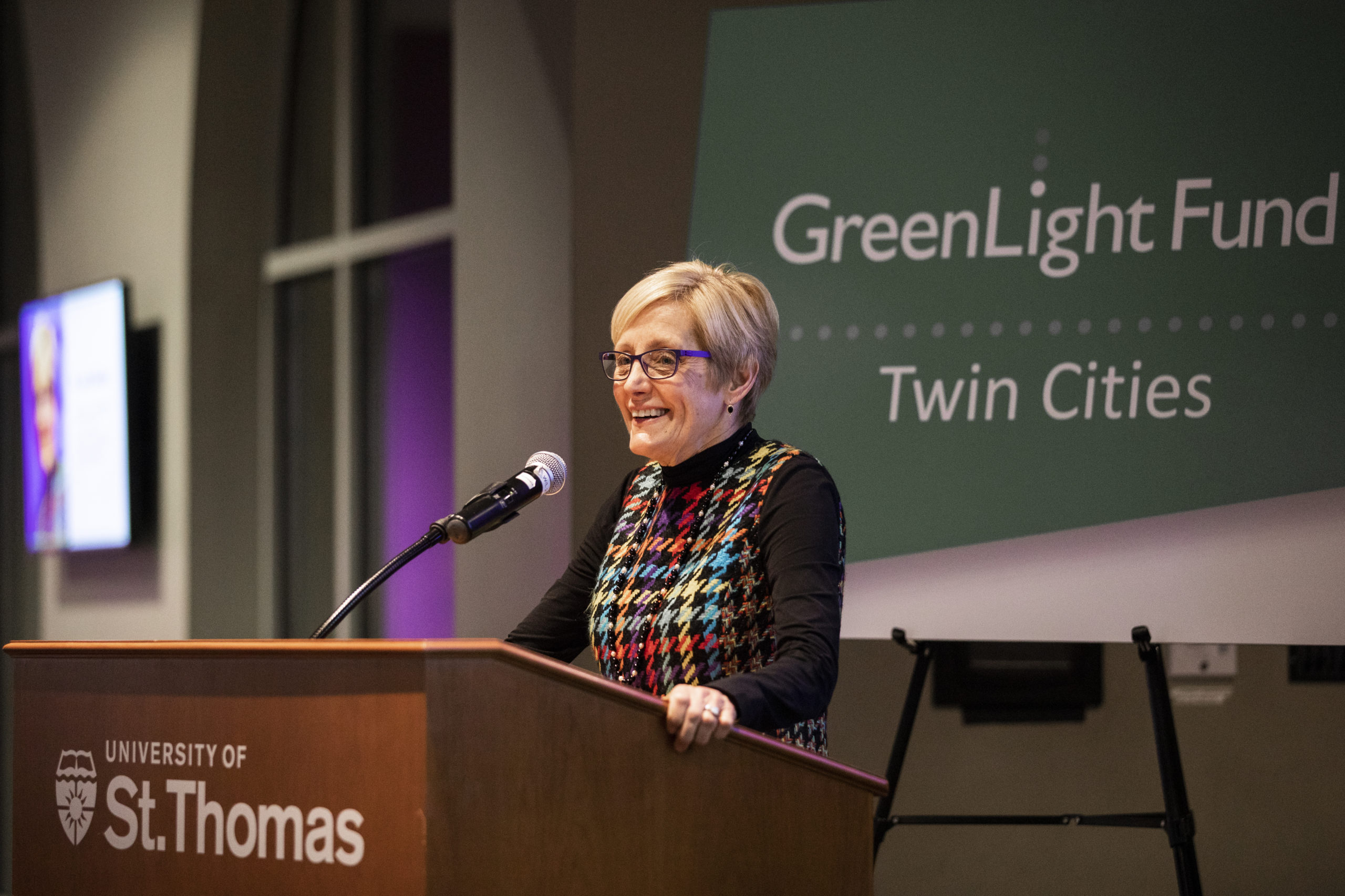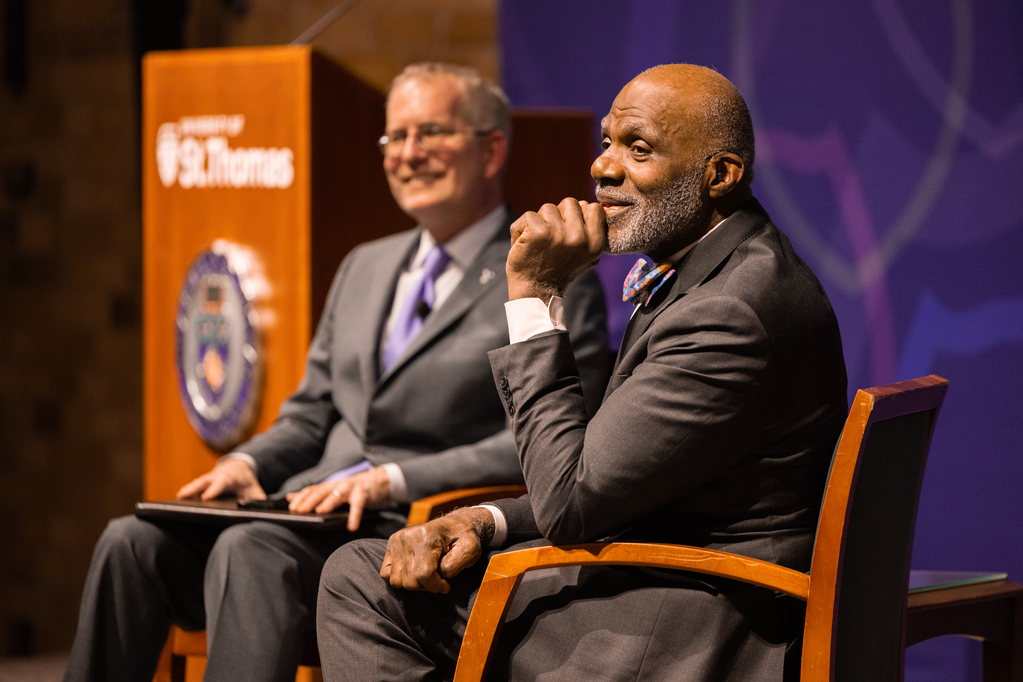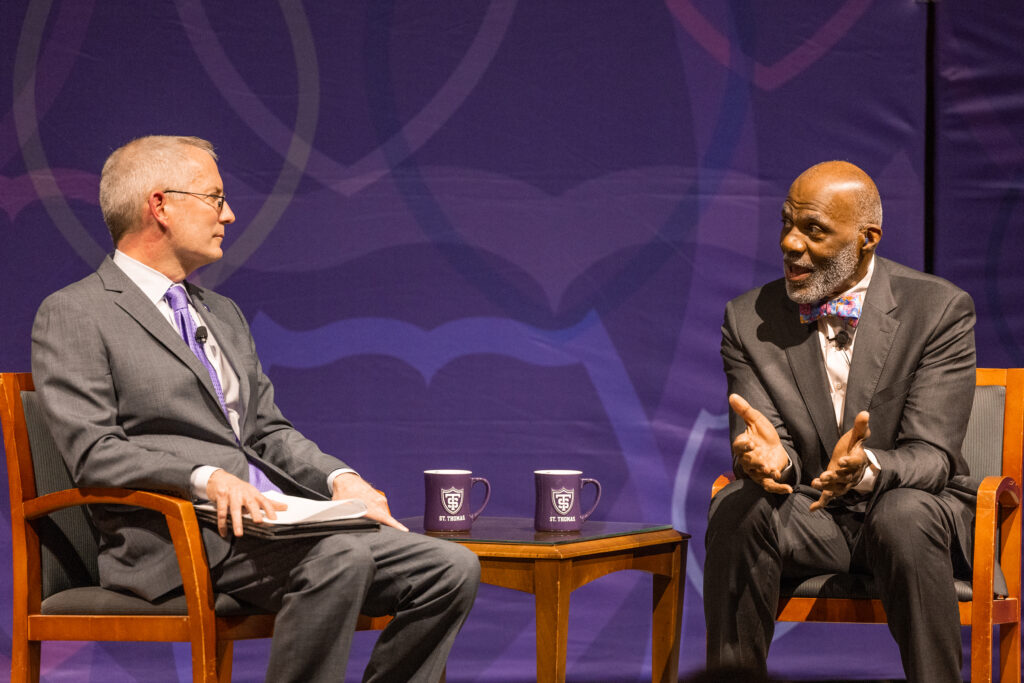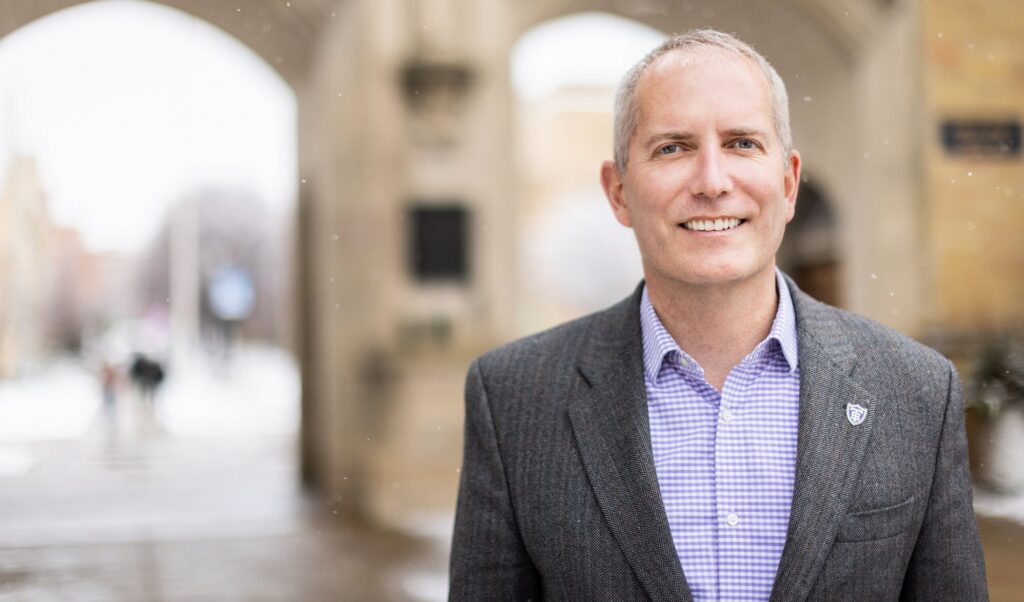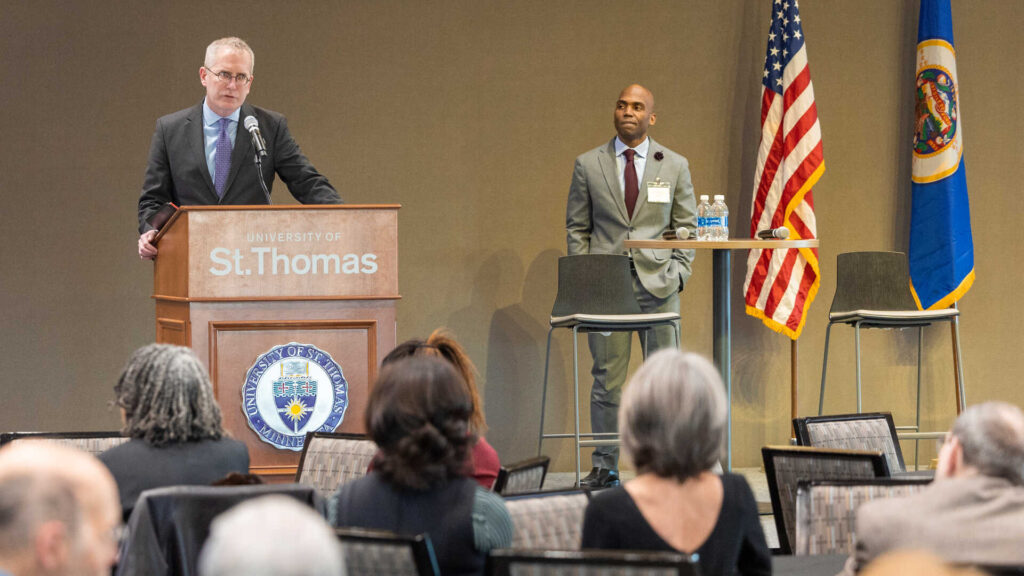President Julie Sullivan and the St. Thomas community hosted the launch of GreenLight Twin Cities Tuesday night in the Anderson Student Center.
Sullivan and St. Thomas are one of a large number of initial supporters of the locally-driven nonprofit, which will identify and address pressing, unmet needs of children and families in the region’s low-income communities.
“We were immediately impressed with GreenLight’s focus on implementing best-in-class solutions from across the nation to provide opportunities for children and families in our community,” said Sullivan of GreenLight , which has previously launched in eight cities across the country. “GreenLight’s impact in other cities has been profound, and we believe that it will be transformative here in the Twin Cities.”
GreenLight Twin Cities will collaborate with the local community to transform the lives of low-income children, youth and families in the Twin Cities by conducting an annual process to identify where there are gaps in services; supporting innovative, entrepreneurial organizations with proven, measurable results to address those gaps; and galvanizing local community support to help programs reach and sustain impact.
St. Paul Mayor Melvin Carter was on hand Tuesday to welcome GreenLight to the Twin Cities.

St. Paul Mayor Melvin Carter speaks Tuesday in Anderson Student Center during the launch of GreenLight Twin Cities. (Liam Doyle/University of St. Thomas)
“Building a city that works for all of us requires that we identify innovative solutions to address our toughest challenges,” he said. “The GreenLight Fund will support even greater collaboration in our community, as we work to realize the big vision we’ll create together.”
Matching philosophies
Sullivan and St. Thomas’ support of GreenLight comes as no surprise to anyone familiar with the university’s long-standing partnerships throughout the Twin Cities community, especially through the Center for Common Good. GreenLight’s partnership-creating philosophy is strikingly similar to the Center’s mission to “connect University of St. Thomas students, faculty and staff with community engagement opportunities so we can understand today’s most pressing social challenges, build mutually beneficial relationships, and work toward innovative solutions – all for the common good.”
“The idea of being the connector, and of going out to find the unmet needs and finding solutions, and helping our students understand how they can engage in these solutions, is part of the synergy between their philosophy and our mission,” said Amy McDonough, St. Thomas’ chief of staff. “When we put our efforts together, we can gain a deeper understanding of complex issues, create stronger communities, and become inspired to take action.”
